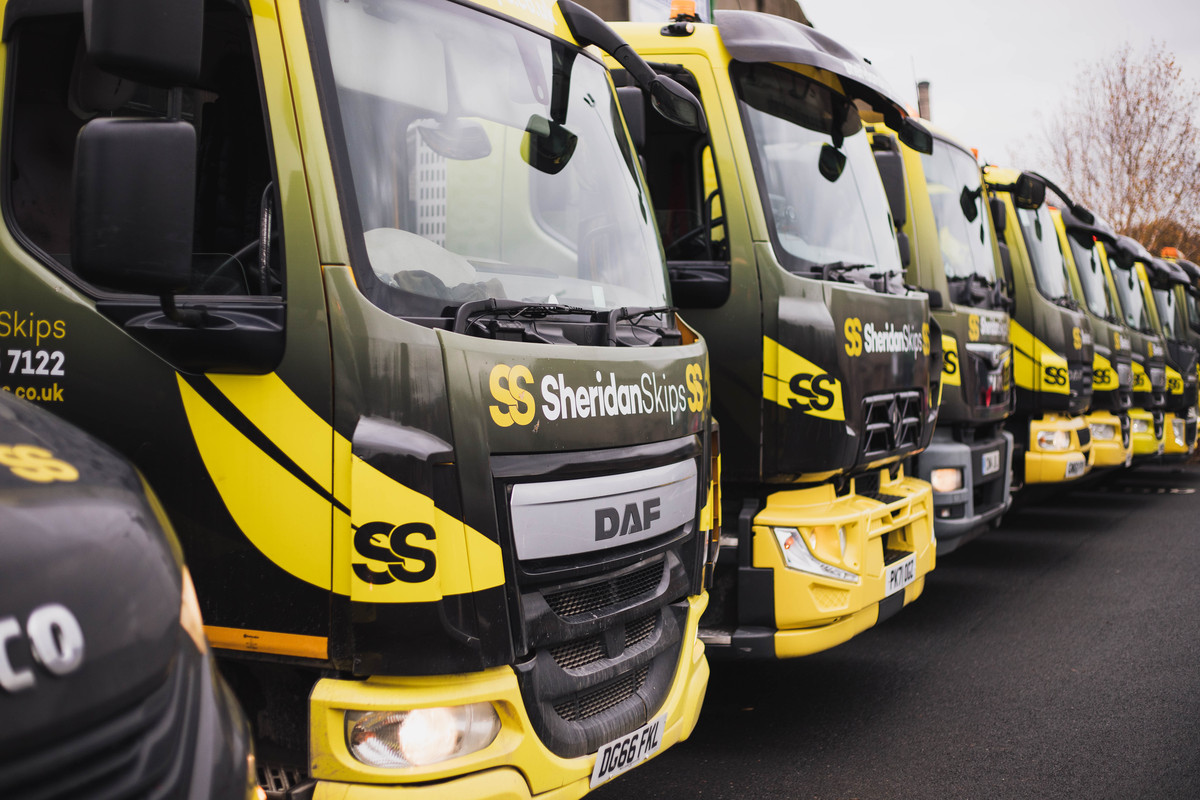If you have a long history of overseeing refurbishment, remodeling and renovation projects, you are probably all too familiar with the arduous experience of taking repeated trips to the tip to offload the tonnes of waste generated as a result of property improvement work.
In your case, perhaps the work in question has been a domestic project, like fitting out a new kitchen or bathroom, or one of the commercial projects often appealing to businesses – such as repainting an office in new colours as part of a rebranding exercise.
At one point or another, though, you could find yourself with a dauntingly large amount of domestic or commercial waste that needs discarding. Simply dumping this waste on land not licensed to accept it would be a big no-no, as this would constitute the unlawful practice of fly-tipping.
Naturally, you need to find legal means of waste disposal – but taking your waste to a tip, otherwise known as a landfill site, can have a wide range of drawbacks in itself. Tips are so busy that you may need to wait in a long queue before you can even start manually loading and unloading your vehicle.
This loading and unloading can also be time-draining – especially if you have a large number of bulky items that need transferring. Depending on the amount of waste you have in total, you could also find yourself needing to make multiple trips even when all of this waste has come about due to just one building project.
Making multiple tip runs could also significantly increase your carbon emissions. That’s before you consider the further environmental damage you could inadvertently cause by using a landfill for the waste you might not have realised would actually be a strong candidate for recycling instead.
Fortunately, for both domestic and commercial customers, we provide skip hire in Manchester as well as surrounding areas like Bury, Tameside and Ashton-under-Lyne. While finding a solution for project waste is difficult, a skip can provide you with the best and easiest way to dispose of this material.
What Project Materials Can I Put in a Skip?
It could have eluded your notice just how efficient a skip hire service can prove for helping you to discard various types of waste. While not all materials would be suitable for a skip, a specialist skip hire company like Sheridan Skips can still advise you on what materials you should leave out – and help you with finding alternative ways to dispose of them.
The Builders’ Skips (Markings) Regulations 1984 govern what you legally can and can’t put in a skip. This law is in place to help prevent materials from being handled in a manner damaging to the environment – especially as certain waste is capable of emitting dangerous chemicals.
So, what items can you place in a skip? Good examples include many materials often routinely used in property improvement work, such as wood, tiles and plaster. We offer skips in which you could also load heavy building materials like rubble, stones, clay, bricks, metals and concrete.
Our friendly team can even help you with spring cleaning – as paper, cardboard, clothes and furniture could all also go into skips we are ready to supply. With a skip collection service, we can also handle large amounts of garden waste – for example, if landscaping work has just been completed in your garden and loose grass, weeds, flowers, bark and hedge cuttings now need removal.
Though garden debris comprises roughly 14% of the average household bin, most kinds of garden waste can actually be recycled. Once we have sorted through your skip and identified garden materials that would be eligible for composting, we can send these to a specialist company that would be able to create compost that is ideal for nourishing soil and helping plants to grow.
So, what items are you legally barred from putting in a skip? These items include animal waste, gas cylinders, batteries, paint, tyres, lighting fixtures, TVs and other, similar electrical devices. Also on the list is asbestos. When materials containing asbestos are disturbed or damaged, they release fibres that, when inhaled, can cause serious diseases.
What Skip Size Is Best for a Commercial Project?
We offer four different sizes of skips – and, if you are a landlord or property developer overseeing improvement work on a commercial property, you could understandably be eager to discern which of these sizes would be ‘just right’ for your needs.
After all, opting for the wrong size could require you to subsequently hire a new, more suitable skip, therefore costing you extra time and money – neither of which your business might have in particularly large supply. So, you should try your best to make the right choice the first time around.
The most common size of skip chosen by clients hiring from us is our 8-cubic-yard size, which is capable of holding various materials you might routinely use for commercial projects. These materials include rubble, wood, plastic and metal.
You could find this size of skip particularly cost-effective for disposing of plasterboard, as this must not be placed in a skip with mixed waste. Instead, plasterboard has to be kept separate, such as in its own skip – but your particular project might not result in quite enough plasterboard wastage to justify you hiring one of our larger, and thus more expensive, sizes of skip just for it.
Nonetheless, you could find that your waste disposal needs are much more significant than what our smallest skips alone can meet. Often, businesses can be involved in multiple property developments and improvements at once – and this can see demand for waste collection services soar.
If your business is indeed occupied in this way, you could feel drawn towards our 8-yard skips, each of which can hold eight tonnes of bulky waste. You could even contemplate our 12-yard skips, which are each good for containing up to 12 tonnes of heavy waste, or 16-yard skips – any of which can hold as many as 170-200 full bin bags of waste.
If you are struggling to decide which of our skip sizes would best suit your particular commercial requirements, we would welcome you to give us a call on 0161 647 7668 for a chat about the issue. We can schedule regular skips for commercial projects underway in Manchester and surrounding areas.
Which Skip Size Should I Hire for a Domestic Renovation Project?
Various examples of home renovation projects abound. These include installing new kitchens and bathrooms, converting garages and lofts and even just a little redecorating, such as repainting a wall or applying new wallpaper to it. However, all of these projects can create various kinds of waste.
Exactly what kinds of waste they do create will be a major factor in which type of skip should be hired in the aftermath. Still, before choosing between our skip sizes, you should look into whether you could find new uses for at least some of the ‘waste’ your renovation work has left behind.
While skips are often used to get rid of such usable items as furniture, these can be relatively bulky and so call for much larger skips than, say, surplus pieces of wood, plastic or metal. So, consider whether you might be able to donate usable items to charity or just give them away.
Minimising the amount of your domestic waste in this way can also make it easier for you to utilise cheap skip hire – since, the smaller the skip, the less expensive it will likely be to hire. A skip measuring four cubic yards can suffice for many smaller home renovation projects, like bathroom refits – and is also our most popular skip size.
However, if your home renovation project is particularly demanding or turns out to require more work than you had anticipated, the perfect skip for your needs could be larger than the base size we offer. Hence, you shouldn’t be afraid to ask our skip specialists for further advice on the subject.
It’s worth heeding that you could also need a skip permit if the skip will need to be left on public land – rather than, say, a driveway or garden, if neither of which you own is quite large enough to accommodate the skip. Reassuringly, though, we have helped domestic clients with obtaining skip permits and are thoroughly familiar with the process.
This is just one reason why our professional team can help you to save time, as they can also arrange to retrieve a skip on the same day they initially provide it. Alternatively, they could turn up to collect the skip the following day, if this would be more convenient for you.
As we know that overflowing landfill sites exacerbate climate change, we endeavour to minimise how much of the waste we collect eventually ends up at these sites. We follow strict, eco-friendly protocols and procedures, which enable us to sort materials left in a skip and identify recyclable contents so that we can subsequently transport them to recycling centres.
It’s Easy to Utilise Skip Hire in Manchester and Nearby
With our skip hire solutions, we serve a wide range of locations – including not only Manchester but also such nearby areas as Oldham, Trafford, Ashton-under-Lyne and Droylsden. When you hire a skip from our professional service, you can anticipate being able to dispose of waste as and when necessary – whether you are enhancing a domestic or commercial property.

